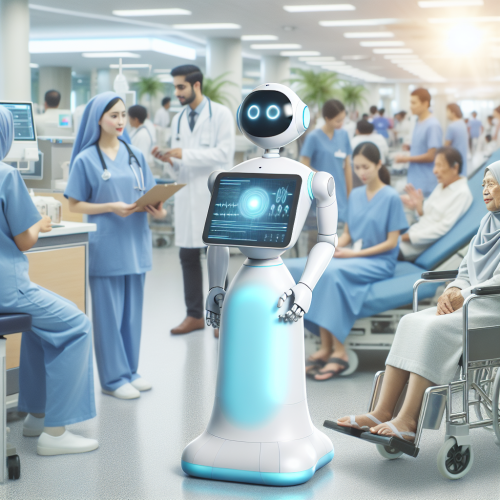المتابعين
فارغ
إضافة جديدة...
في عالم التكنولوجيا الحديثة، أصبحت المصطلحات مثل Machine Learning وDeep Learning شائعة بشكل متزايد، ولكن الكثير من الناس يواجهون صعوبة في فهم الفرق بينهما. هذه المفاهيم جزء من التكنولوجيا الأوسع المعروفة باسم الذكاء الاصطناعي (AI) وتمثل مكونات أساسية لتطوير التقنيات الذكية. في هذا المقال، سنستعرض الفروق الجوهرية بين Machine Learning وDeep Learning بالتفصيل ونوضح كيفية عمل كل منهما، بالإضافة إلى الأمثلة العملية والتطبيقات الشائعة. #MachineLearning #DeepLearning #الذكاء_الاصطناعي
ما هو Machine Learning؟
Machine Learning (تعلم الآلة) هو فرع من الذكاء الاصطناعي يركز على تصميم وتطوير الخوارزميات التي تمكن الأنظمة من التعلم من البيانات بدلاً من البرمجة الصريحة. يتم استخدام تقنيات تعلم الآلة لتحليل البيانات، توقع النتائج، وتحسين الأداء بناءً على التجربة.
تعتمد Machine Learning على استخدام مجموعة من البيانات لتدريب النموذج (Model)، مما يعني أن الكمبيوتر يمكنه التعرف على الأنماط في البيانات واتخاذ قرارات أو توقعات بناءً على البيانات المستقبلية المحتملة. على سبيل المثال، يمكن لتعلم الآلة تحسين نتائج محركات البحث، التعرف على النصوص المكتوبة بخط اليد، أو حتى توقع الأنماط المستقبلية للأسواق المالية.
مكونات أساسية لتعلم الآلة
يتضمن تعلم الآلة ثلاثة مكونات رئيسية:
البيانات: البيانات هي الوقود الأساسي لتعلم الآلة. بدون بيانات كافية ومناسبة، لا يمكن تدريب النماذج بدقة.
الخوارزميات: الخوارزميات تحدد طريقة التعلم ونوع الأنماط التي سيتم اكتشافها في البيانات.
النماذج: النماذج هي المخرجات النهائية التي يتم تدريبها على مجموعة البيانات، وتستخدم للتنبؤ بالبيانات الجديدة.
#تعلم_الآلة #ML
ما هو Deep Learning؟
Deep Learning (التعلم العميق) هو فرع متقدم من Machine Learning، يُركز على استخدام الشبكات العصبية الاصطناعية (Neural Networks) التي تحاكي الشبكات العصبية البشرية. يُطلق عليها "عميقة" لأنها تحتوي على العديد من الطبقات (Layers) التي تُعالج البيانات بشكل تسلسلي ومتدرج.
في التعلم العميق، ترتكز الخوارزميات على تحليل كميات كبيرة جدًا من البيانات وتحديد الأنماط بطرق أكثر تعقيدًا وفعالية من تعلم الآلة التقليدي. يعود الفضل للتعلم العميق في تحقيق العديد من الاختراقات التقنية الحديثة، مثل التعرف على الوجوه، والترجمة الآلية، ومعالجة الصور.
مميزات التعلم العميق
تتسم تقنية Deep Learning بعدد من الخصائص الفريدة، منها:
القدرة على معالجة بيانات ضخمة: شبكات التعلم العميق قادرة على التعامل مع كميات هائلة من البيانات وتحليلها بكفاءة.
الطبقات العديدة: تتيح الطبقات المتعددة تدريج معالجة البيانات من مستوى أولي إلى مستوى متقدم.
الاستقلالية: بعكس تعلم الآلة التقليدي، لا يتطلب التعلم العميق تدخلًا كبيرًا من البشر لتحديد السمات المطلوبة، إذ يقوم بتحليل البيانات واستخراج الأنماط ذاتيًا.
#التعلم_العميق #DL
الفرق بين Machine Learning وDeep Learning
1- التعقيد في البيانات
أحد الفروق الرئيسية بين Machine Learning وDeep Learning هو مستوى تعقيد البيانات المطلوبة. بينما يمكن لـ Machine Learning التعامل مع البيانات المنظمة مثل الجداول والرسوم البيانية البسيطة، يحتاج Deep Learning إلى بيانات أكثر تعقيدًا مثل الصور والفيديوهات والنصوص غير المنظمة.
2- حجم البيانات
يُعتبر Deep Learning أكثر تأثرًا بحجم البيانات. فكلما زاد حجم البيانات كان أداؤه أفضل، بينما يمكن لـ Machine Learning أن يعمل بكفاءة مع أحجام بيانات أصغر نسبيًا.
3- البنية المعمارية
تعتمد Machine Learning على خوارزميات بسيطة نسبيًا مثل الانحدار (Regression) وأقرب الجيران (K-Nearest Neighborhood)، في حين يعتمد Deep Learning على شبكات عصبية معقدة تحتوي على عدة طبقات.
4- الأداء والسرعة
Deep Learning عادة ما يكون أكثر دقة من Machine Learning في مهام مثل التعرف على الصور أو التنبؤات المعقدة، ولكنه يتطلب وقتًا أكبر للتدريب وقدرة معالجة أعلى. من ناحية أخرى، قد تكون خوارزميات Machine Learning أسرع ولكن أقل دقة في المهام المعقدة.
5- الاستقلالية
في Machine Learning، يحتاج المهندسون إلى تحديد الميزات الرئيسية يدويًا لتغذية النماذج. بينما في Deep Learning، تتعلم النماذج الميزات الهامة تلقائيًا دون الحاجة إلى التدخل البشري.
#الفرق_بين_ML_و_DL
التطبيقات العملية لتعلم الآلة والتعلم العميق
يمكن العثور على تطبيقات لكل من Machine Learning وDeep Learning في مجموعة واسعة من المجالات. هنا بعض الأمثلة:
تطبيقات Machine Learning
تحليل البيانات: يساعد في تفسير البيانات وتنظيمها لتقديم رؤى واضحة.
أنظمة التوصية: مثل اقتراح الفيديوهات في يوتيوب أو المنتجات في أمازون.
التنبؤ بالمخاطر المالية: يستخدم في التنبؤ بحالات الإفلاس وتحليل المخاطر.
تطبيقات Deep Learning
التعرف على الوجه: مثل تطبيقات فتح الهواتف باستخدام التعرف على الوجه.
الترجمة الآلية: تطبيقات الترجمة الفورية مثل Google Translate.
السيارات ذاتية القيادة: تعتمد بشكل كبير على شبكات التعلم العميق لتحليل البيئة المحيطة.
الخاتمة
يُعتبر كل من Machine Learning وDeep Learning أداتين قويتين في مجال الذكاء الاصطناعي، ولكل منهما مزاياه واستخداماته الفريدة. يعتمد اختيار الأسلوب المناسب بينهما على نوع البيانات المتاحة والغرض من التطبيق النهائي. حيث يمكن استخدام Machine Learning للمهام التي تتطلب تدخلًا بسيطًا وسرعة، بينما يناسب Deep Learning المشاريع التي تتطلب تحليلًا أكثر تعقيدًا ودقة عالية. إذا كنت ترغب في تعلم المزيد حول الذكاء الاصطناعي، فأهم خطوة هي البدء بفهم هذه الفرق الجوهرية بين تقنيات Machine Learning وDeep Learning.
#الذكاء_الاصطناعي #التعلم_الآلي_والعميق
Artificial Intelligence (AI) is undoubtedly one of the most transformative technologies of our time. From self-driving cars to virtual assistants like Siri and Alexa, AI is revolutionizing industries, enhancing efficiency, and becoming an integral part of our daily lives. But what exactly is artificial intelligence, and how does it function? This detailed guide explores all aspects of AI, focusing on its history, applications, benefits, and ethical considerations, while optimizing it for SEO with the primary keyword Artificial Intelligence and related phrases.
What Is Artificial Intelligence?
Artificial Intelligence refers to the simulation of human intelligence in machines programmed to think and learn like humans. The term is often applied to systems or machines that exhibit traits associated with a human mind, such as problem-solving, learning, and decision-making. AI is an umbrella term that encompasses subfields such as machine learning, deep learning, natural language processing, computer vision, and robotics.
The evolution of AI dates back to the 1950s, and its growth has been meteoric since then, thanks to advancements in computational power and data accessibility. Today, AI fuels countless applications, from predictive analytics and speech recognition to personalized recommendations on streaming platforms like Netflix.
LSI Keywords: machine learning, neural networks, deep learning, robotics, data science, natural language processing
How Does Artificial Intelligence Work?
Data Input: The process starts with feeding data into AI systems, whether structured or unstructured.
Learning Algorithms: AI uses algorithms to learn from data, finding patterns and making predictions.
Decision-Making: Based on the learned data, AI systems make decisions or provide outputs that imitate human reasoning.
Feedback Mechanisms: AI systems are often equipped with feedback mechanisms to refine their performance over time.
Whether it's classification tasks in a machine-learning algorithm or detection functions in a computer-vision system, AI functions dynamically by leveraging tools like neural networks, decision trees, and statistical models to simulate cognition.
Applications of Artificial Intelligence
AI has penetrated various industries, improving operations and service delivery while reducing human error. Below are several key domains where AI is making significant advancements:
Healthcare Industry
AI is revolutionizing healthcare by aiding in diagnostics, treatment planning, and drug discovery. For instance:
AI-powered tools can analyze medical imaging, such as X-rays and MRIs, with exceptional accuracy.
Robotic-assisted surgeries are becoming more prevalent, offering precision and reduced recovery time.
AI data analytics are facilitating personalized treatment based on patient histories and genetic profiles.
Business and Finance
In businesses, AI enhances efficiency and decision-making:
Chatbots provide 24/7 customer support, increasing customer satisfaction and operational efficiency.
AI-driven fraud detection algorithms are used extensively in the finance sector to prevent fraudulent activities.
Predictive analytics help companies forecast trends and consumer behavior, aiding in strategic planning.
Education
AI is transforming education by personalizing learning experiences:
Adaptive learning platforms create customized curriculums based on a student's performance.
AI-assisted grading tools minimize the workload for teachers and provide unbiased evaluations.
Virtual reality, powered by AI, is being used for immersive learning experiences.
Transportation
AI is redefining the concept of transportation with innovations such as:
Self-driving cars that leverage computer vision and deep learning for navigation.
Traffic management systems that use AI to efficiently control congestion.
Predictive scheduling systems for public transport to optimize efficiency.
Benefits of Artificial Intelligence
Artificial Intelligence offers various advantages that make it indispensable:
Enhancing Efficiency
One of AI’s most significant benefits is automating repetitive tasks, freeing humans for creative and managerial pursuits. In factories, robots powered by AI are assisting in manufacturing, quality control, and logistics. This enhances efficiency, reduces costs, and minimizes the risk of errors.
Improved Decision-Making
Organizations are leveraging AI-powered tools for data analysis and decision-making. By providing insights from massive datasets quickly and accurately, AI enables informed and strategic decisions, whether it's forecasting sales or optimizing supply chains.
Accessibility and Personalization
AI-powered devices are making services accessible across demographics. Virtual assistants can be customized to suit individual preferences, offering experiences tailored to the user's needs. AI in healthcare is increasingly helping diagnose rare diseases that were previously challenging for human doctors.
Innovation Drives
AI is the driving force behind innovations across sectors. In entertainment, AI assists with creating lifelike animations, while in space exploration, it enables autonomous navigation on extraterrestrial terrains.
Challenges and Ethical Considerations in Artificial Intelligence
While AI offers immense possibilities, it also brings challenges and ethical dilemmas that need addressing.
Bias in AI Algorithms
AI systems are only as unbiased as the data they are trained on. If the data contains inherent biases, the AI’s decision-making can perpetuate these biases. For example, hiring algorithms might disadvantage minorities if historical hiring data is biased.
Job Displacement
The automation of tasks by AI threatens the jobs of millions, especially in repetitive or manual domains. Industries must plan for reskilling workers to prepare them for new roles created by AI technologies.
Privacy Concerns
The collection and processing of sensitive personal data by AI systems raise privacy concerns. How organizations store, use, and safeguard this data remains a critical challenge.
AI Governance
As AI systems become more sophisticated, questions arise regarding their regulation and governance. Ensuring responsible AI development and deployment requires oversight, ethical frameworks, and collaborative policy-making.
Future of Artificial Intelligence
The future of artificial intelligence promises groundbreaking innovations:
Artificial General Intelligence (AGI): The development of AGI, where machines exhibit cognitive functions equal to or exceeding that of humans, is a key frontier.
AI in Climate Change: Future AI advancements may help model climate change patterns and suggest actionable solutions.
Healthcare Diagnostics: AI systems are expected to advance in diagnosing diseases well before symptoms appear, improving preventive care.
Expanded Automation: The automation of complex tasks across multiple industries affects productivity and efficiency.
Conclusion
Artificial Intelligence is a transformative force that is reshaping industries and redefining possibilities. It offers immense benefits, ranging from automating routine tasks to driving innovations that address global challenges. Yet, the rise of AI must be balanced with considerations for ethics, privacy, and governance. As society embraces this technology, forward-thinking collaboration—between governments, industries, and communities—will be essential to harness its true potential responsibly.
Hashtags: #ArtificialIntelligence #MachineLearning #DeepLearning #AIApplications #TechnologyTrends #FutureOfAI #EthicsInAI #Robotics #DataScience #AIInnovation
```html
في عصر التحول الرقمي السريع، أصبح الذكاء الاصطناعي جزءًا لا يتجزأ من حياة البشر اليومية، حيث يظهر تأثيره في جميع جوانب حياتنا بدءًا من التطبيقات التي نستخدمها إلى القرارات التجارية المعقدة.
إذا كنت مهتمًا بالدخول إلى عالم الذكاء الاصطناعي وتعلم أساسياته، فإن هذا الدليل سيأخذك في رحلة مثرية لفهم الركائز الأساسية لهذا المجال الرائع. في هذه المقالة، سنتناول أساسيات تعلم الذكاء الاصطناعي، وكيفية البداية خطوة بخطوة.
ما هو الذكاء الاصطناعي؟
الذكاء الاصطناعي، والمشهور أيضًا بمصطلحه باللغة الإنجليزية "Artificial Intelligence" (AI)، يشير إلى تطوير الأنظمة والآلات التي تمتلك القدرة على التفكير والتحليل واتخاذ القرارات بطريقة مشابهة للبشر. يعتمد الذكاء الاصطناعي بشكل كبير على تكنولوجيا تعلم الآلة وتعلم العميق لتتمكن الآلات من تحليل البيانات واستنباط الأنماط ومساعدتنا في التنبؤ بالمستقبل.
الذكاء الاصطناعي ليس مجرد تقنية مستقبلية، بل هو اليوم أساسي في مختلف القطاعات من الطب والتجارة وحتى التسويق. لذا إذا كنت مهتمًا بتعلم الذكاء الاصطناعي، من الضروري أن تبدأ بفهم بنيته وأسسه.
أهم مصطلحات الذكاء الاصطناعي:
التعلم الآلي (Machine Learning): طريقة لتطوير نماذج تعتمد على البيانات لتعلم الأنماط والتنبؤ بالحلول.
التعلم العميق (Deep Learning): فرع من فروع التعلم الآلي يعتمد على الشبكات العصبية لتحليل البيانات بطرق أكثر تعقيدًا.
الشبكات العصبية الاصطناعية (Neural Networks): أنظمة حاسوبية مستوحاة من الطريقة التي يعمل بها الدماغ البشري.
معالجة اللغة الطبيعية (NLP): تقنية تمكن الكمبيوتر من فهم لغة الإنسان والتفاعل معها.
خطوات أساسية لتعلم الذكاء الاصطناعي
لتعلم الذكاء الاصطناعي بطريقة فعالة، يجب اتباع خطوات منهجية تساعدك على بناء مهاراتك بشكل تدريجي. فيما يلي تفاصيل أهم الخطوات:
1. الإلمام بالمبادئ الأساسية
البداية دائمًا من الأساسيات. تحتاج أولًا إلى فهم بعض المفاهيم الأساسية مثل الخوارزميات والبرمجة والرياضيات. تعد الرياضيات حجر الأساس في الذكاء الاصطناعي، حيث تحتاج إلى معرفة قواعد الجبر الخطي والاحتمالات وحساب التفاضل والتكامل. كما ينبغي أن يكون لديك خلفية جيدة في البرمجة باستخدام لغات مثل Python، التي تُعدّ ضرورية في هذا المجال.
2. تعلم لغات البرمجة المناسبة
إذا كنت مبتدئًا، فإن تعلم البرمجة هو خطوة لا غنى عنها. يُفضل البدء بـ Python لأنها لغة بسيطة وسهلة التعلم وتحتوي على مكتبات رائعة مثل TensorFlow وPyTorch وScikit-learn التي تدعم تطوير الذكاء الاصطناعي.
بجانب Python، يمكنك أيضًا تعلم لغات أخرى مثل R أو Java حسب متطلبات المشروع الذي تعمل عليه.
3. دراسة البيانات (Data Science)
الذكاء الاصطناعي يعتمد بشكل كبير على تحليل البيانات. يجب أن تفهم كيفية جمع البيانات وتصنيفها وتحليلها. تتطلب هذه الخطوة استخدام أدوات مثل Pandas وNumPy لتحليل البيانات والقيام بعمليات معالجة أولية على البيانات.
4. تعلم التعلم الآلي (Machine Learning)
السير في طريق الذكاء الاصطناعي لا يتم بدون تعلم التعلم الآلى. حاول فهم المفاهيم الأساسية مثل الانحدار الخطي، والانحدار اللوجستي، وشجرة القرار، والخوارزميات الأخرى المستخدمة في بناء نموذج فعال. يمكنك البدء من دورات تعليمية مثل Coursera أو Udacity.
أهمية تعلم الذكاء الاصطناعي
تعلم الذكاء الاصطناعي له أهمية بالغة في الوقت الراهن، حيث أن هناك طلب متزايد على مهندسي الذكاء الاصطناعي في معظم المجالات. يساعد الذكاء الاصطناعي على تحسين العمليات، أتمتة المهام، وتقليل الوقت والموارد المطلوبة لإتمام الأعمال.
بالإضافة إلى ذلك، القدرة على استخدام تقنيات الذكاء الاصطناعي تمنحك فرصة عملية قوية وتقلل من فجوة المهارات في سوق العمل.
استخدامات الذكاء الاصطناعي في الحياة اليومية
الذكاء الاصطناعي يظهر اليوم في حياتنا اليومية بأشكال مختلفة، ومنها:
السيارات ذاتية القيادة: تعتمد على أنظمة الذكاء الاصطناعي لفهم البيئة المحيطة واتخاذ القرارات المناسبة.
المساعدات الافتراضية: تطبيقات مثل Siri وAlexa تستخدم الذكاء الاصطناعي لفهم أوامر المستخدمين والاستجابة لها.
تحليل البيانات: تُستخدم تقنيات الذكاء الاصطناعي لتحليل البيانات الضخمة في الوقت الحقيقي.
الروبوتات: روبوتات ذكية قادرة على أداء المهام المعقدة في المجالات الصناعية والطبية.
أفضل الموارد لتعلم الذكاء الاصطناعي
لتعلم الذكاء الاصطناعي بشكل فعال، يمكنك الاعتماد على العديد من الموارد المتاحة عبر الإنترنت. نوصي بالدورات المكثفة مثل:
كتاب "Artificial Intelligence: A Modern Approach"
مواقع مثل Udemy وCoursera وedX.
مكتبات تعليمية قوية مثل TensorFlow وPyTorch.
أهم التحديات في تعلم الذكاء الاصطناعي
على الرغم من وجود العديد من الأدوات والمصادر، إلا أن الطريق لتعلم الذكاء الاصطناعي ليس سهلًا. عليك مواجهة بعض التحديات ومنها:
- التعامل مع الرياضيات المعقدة.
- فهم الخوارزميات والتحليل الرياضي.
- الحاجة إلى التدرب العملي على مشاريع تطبيقية.
كيف تبدأ رحلة تعلم الذكاء الاصطناعي؟
ابدأ بالخطوات الصغيرة مثل قراءة المقالات الموجهة للمبتدئين، ثم الانتقال تدريجيًا إلى الدورات التدريبية والتمارين العملية. حاول تخصيص وقت يومي لمواصلة التعلم.
خاتمة
يدخل الذكاء الاصطناعي في جميع المجالات تقريبًا، مما يجعل امتلاك هذه المهارات في العصر الحالي أمرًا بالغ الأهمية. باتباعك للخطوات الصحيحة والمثابرة، ستتمكن من فهم أساسيات تعلم الذكاء الاصطناعي وتطبيقه بكفاءة في مجالات متنوعة.
ابدأ الآن رحلة تعلم الذكاء الاصطناعي واستفد من الإمكانيات اللامحدودة التي يتيحها هذا المجال.
لا تنس قراءة المزيد من المقالات الغنية بالمعلومات على موقعنا والاستفادة من موارد التعلم المتاحة. #الذكاء_الاصطناعي #تعلم_الذكاء_الاصطناعي #التكنولوجيا #MachineLearning #DataScience
```



